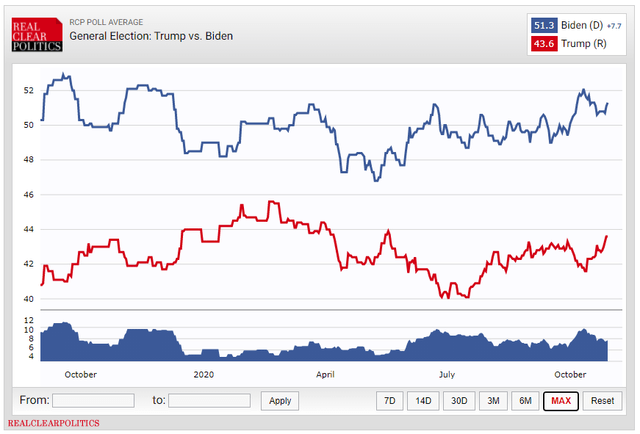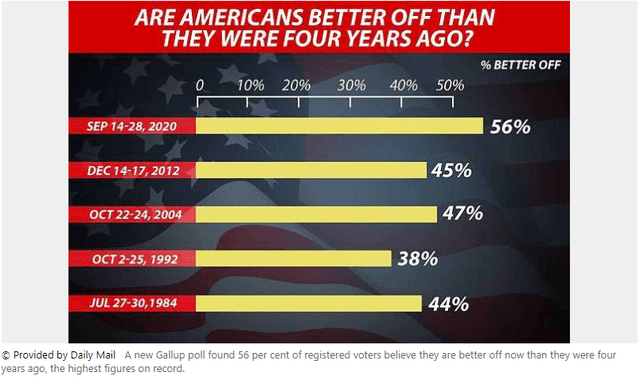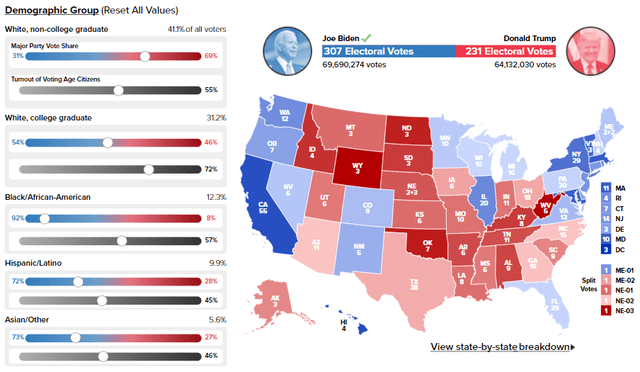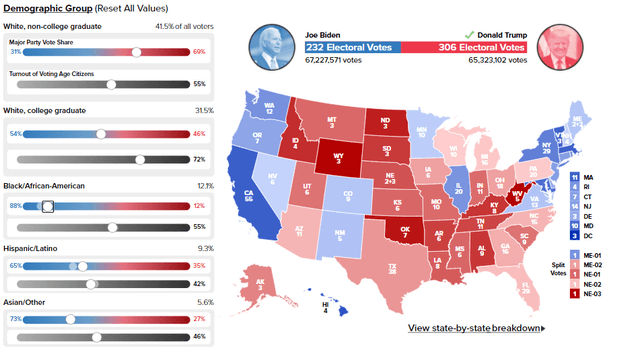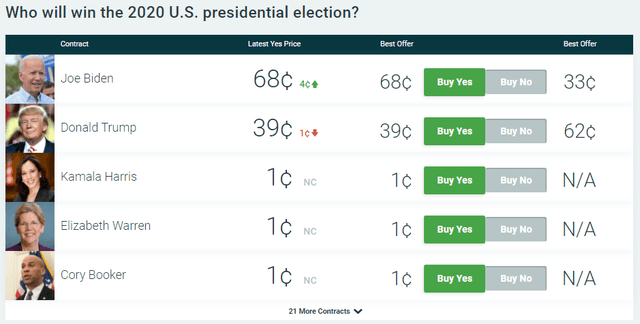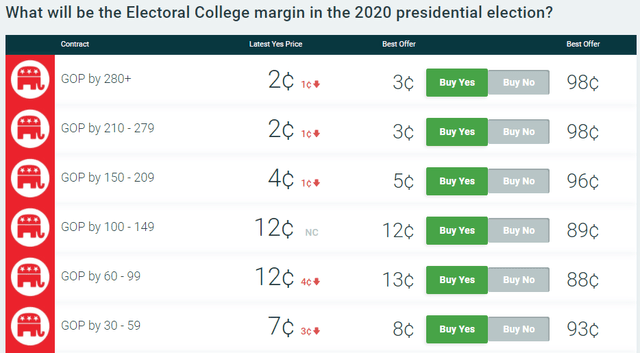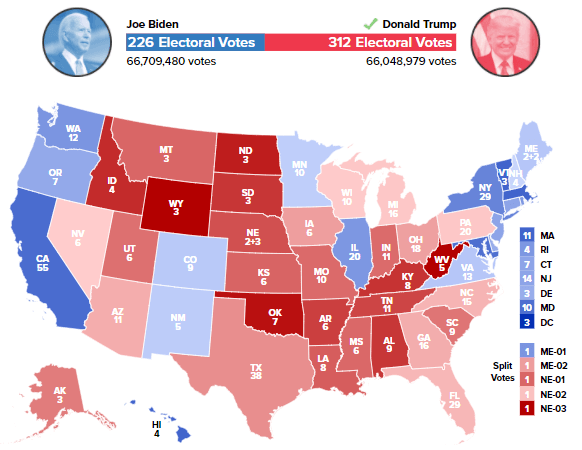
The author's election prediction.
The winner of the 2020 Presidential election will seem obvious in hindsight. If former Vice President Joe Biden wins, that will be consistent with the polls. However, I predict President Trump will win re-election with 312 electoral votes.
The RealClearPolitics National Polling Average
Pollster Robert Cahaly of the Trafalgar Group argues that many shy Trump voters are unwilling to tell pollsters they're voting for Trump. The same phenomenon occurred in 2016. To get around it, the Trafalgar Group asked poll respondents who they thought their neighbors were voting for. The IBD/TIPP poll asks this question as well, and the most recent version of it is illustrative. That poll has Biden winning nationally 50%-to-45.3%. But when IBD/TIPP pollsters asked respondents who their neighbors were voting for, 45% said Trump versus 38% for Biden.
Another poll question casts doubt on the national poll average. The Gallup survey found that 56% of Americans say they're better off than they were four years ago.
This is striking in a year when Americans have suffered from the COVID-19 pandemic and the lockdowns meant to fight it. As the graphic above shows, incumbents won reelection with smaller percentages of voters answering yes to that question.
Voter Enthusiasm
Voter enthusiasm is tougher to gauge with polls, but the contrast between Biden and Trump rallies is striking. Some of Biden's campaign events have been sparsely attended.
While Trump has drawn crowds of 10,000+. Trump's rally in Martinsburg, PA (population: 2,000) reportedly had more than 11,000 attendees.
Predicting The Outcome
The Cook Political Report's Demographic Swingometer lets you predict the election outcome based on the votes and turnout percentages for five different demographic groups. Its default looks like this.
Small changes in the parameters can lead to large changes in the outcome. For example, if you lower black and Hispanic turnout by 2% each due to the effects of vote by mail, and you raise Trump's share of their respective votes to 12% and 35%, respectively, you get this:
I made a couple of additional assumptions to get my 312-226 electoral vote estimate, but the difference between Trump getting 306 electoral votes and 312 is immaterial to my election bet.
Betting On The Election
If you believe Trump will win the election, you can buy the "yes" contract for that, or the "no" contract for Biden on PredictIt. PredictIt pays out one dollar per share on winning contracts, before taking out its fees, so as of this writing, buying the "no" contract at $0.33 was a better deal.
You can get a higher payout if you predict the electoral vote accurately. The "GOP by 60-99" contract below corresponds to my 312-226 prediction, since 312-226 = 86, and 86 is between 60 and 99. It would also pay off if Trump won 306 electoral votes.
Election Risk For Investors
The way to limit your risk on bets like the ones above is to only bet what you can afford to lose. But the election presents broader, political risk to investors. What if there's no consensus on who won next Tuesday?
If you're concerned that chaos might escalate after an unresolved election, below is a way you can limit your risk.
In that video, we use optimal puts on the Invesco QQQ ETF QQQ as a way to hedge market risk, for a tech-heavy investor. Investors who aren't as tech-heavy can use a similar approach with other index ETFs such as the SPDR S&P 500 ETF SPY.
© 2024 Benzinga.com. Benzinga does not provide investment advice. All rights reserved.
Comments
Trade confidently with insights and alerts from analyst ratings, free reports and breaking news that affects the stocks you care about.
